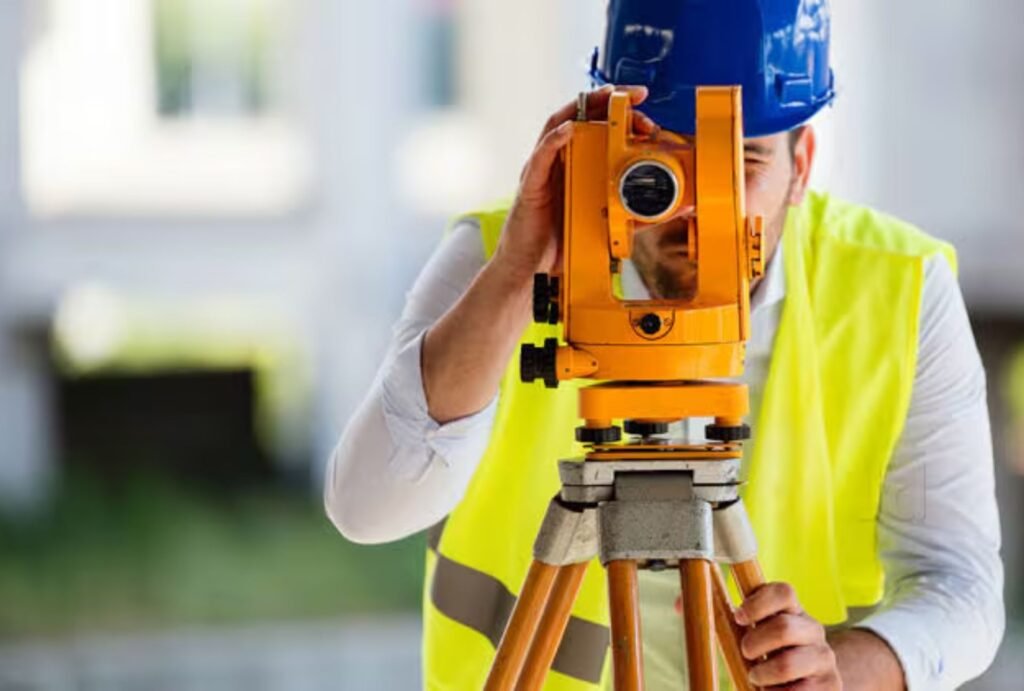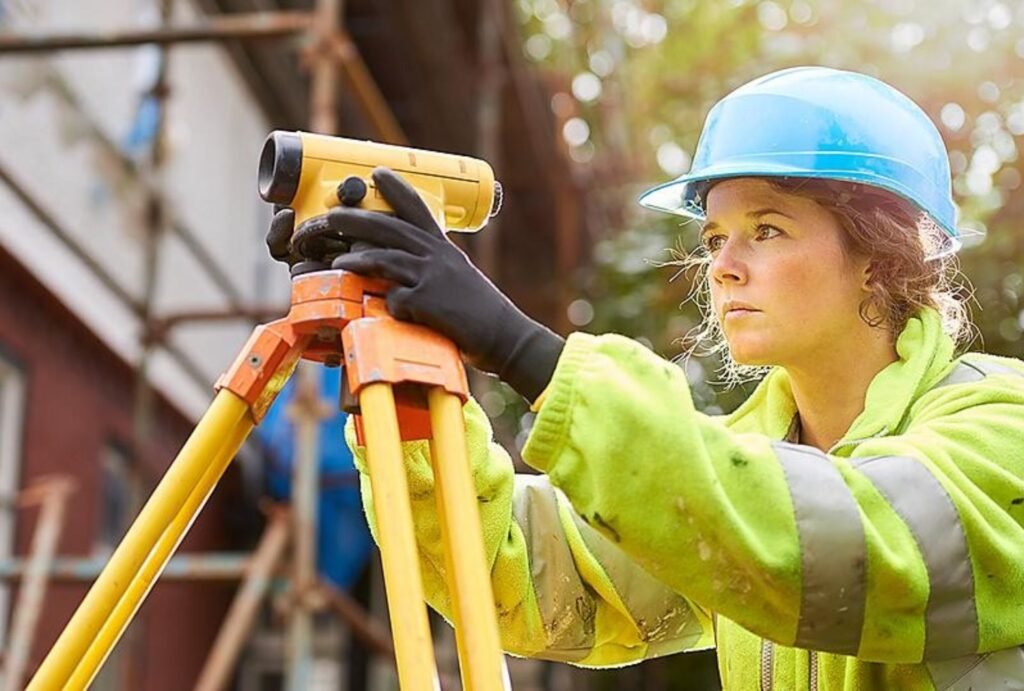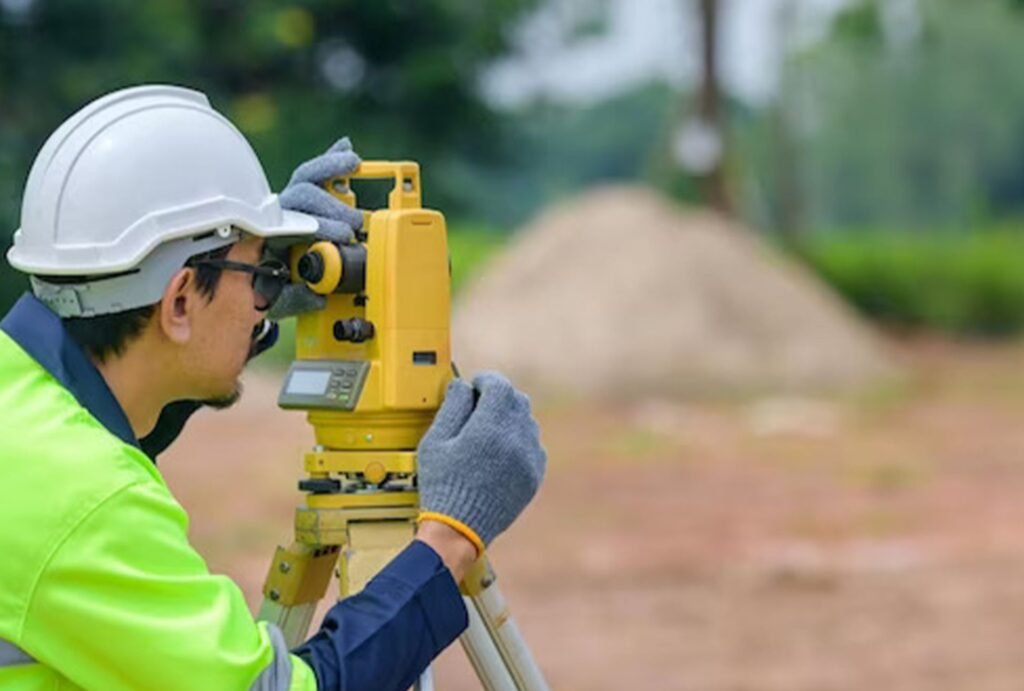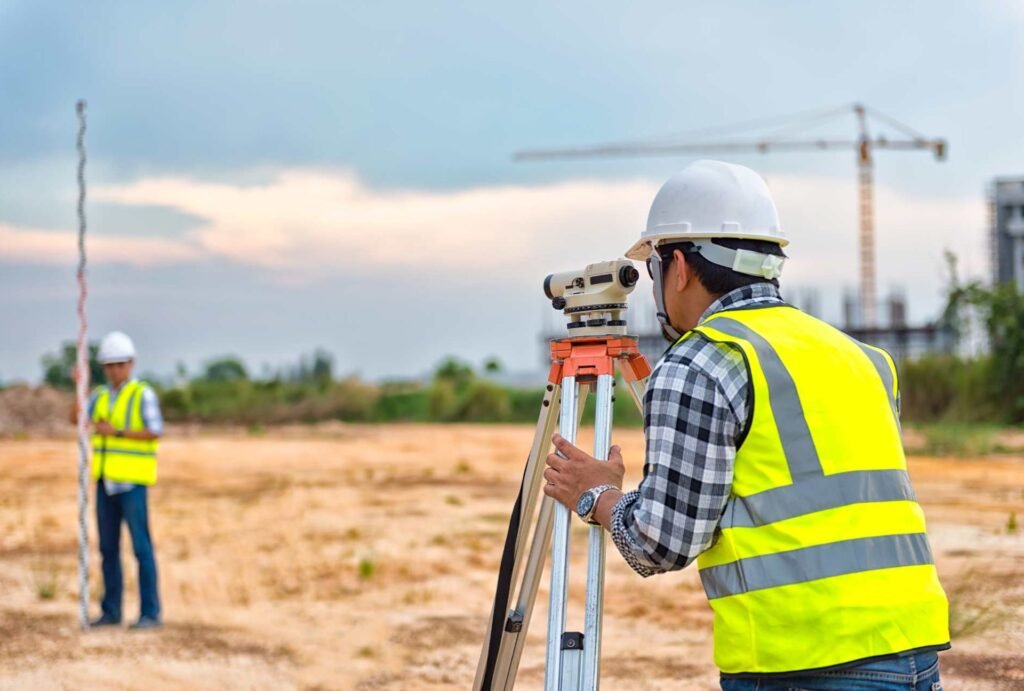Welcome to your ultimate guide on pursuing a Quantity Surveyor Course in NZ! If you’ve ever wondered how large construction projects stay on budget and run efficiently, quantity surveyors are the experts behind the scenes, managing costs, contracts, and financial planning. With New Zealand’s booming construction industry, the demand for skilled quantity surveyors is rising, offering excellent career opportunities, competitive salaries, and global recognition. Whether you’re just starting out or looking to upskill, this guide will walk you through the best quantity surveying courses in New Zealand, entry requirements, career prospects, and how to get certified. Ready to take the first step toward a rewarding career in quantity surveying? Let’s dive in.
A Quantity Surveyor Course in NZ equips students with the skills to manage construction costs, contracts, and project budgets. Offered by institutions like Massey University, Unitec, and Otago Polytechnic, programs range from diplomas to bachelor’s degrees, with options for online and part-time study. Graduates can pursue careers in construction, real estate, and infrastructure, with salaries starting from $55,000 NZD per year. Learn more about entry requirements, certifications, and career opportunities in New Zealand’s booming construction industry.
Table Of Contents
What Is A Quantity Surveyor?
A Quantity Surveyor (QS) is a vital professional in the construction industry, specializing in cost management, budgeting, and financial planning for building projects. They play a critical role in ensuring that projects stay within budget while maintaining quality and compliance with regulations. Whether working on residential, commercial, or infrastructure developments, quantity surveyors help optimize costs, prevent overspending, and maximize project efficiency.
Definition And Role Of A Quantity Surveyor
A Quantity Surveyor is a construction cost expert responsible for managing the financial and contractual aspects of a project. Their expertise covers everything from initial cost estimation to final project settlements. They act as a bridge between clients, contractors, and stakeholders, ensuring that financial decisions align with project goals.
Beyond just crunching numbers, quantity surveyors play a strategic role in project planning and execution. They assess project feasibility, identify potential risks, and provide cost-saving strategies without compromising quality. Their involvement is crucial from the pre-construction phase to project completion, ensuring that every dollar is well spent.
Key Responsibilities Of A Quantity Surveyor
A Quantity Surveyor wears many hats in the construction industry, and their responsibilities can vary depending on the size and type of project. Below are some of their key duties.
Cost Estimation & Budgeting
One of the primary responsibilities of a QS is to prepare accurate cost estimates for construction projects. They analyze project requirements, material costs, labor expenses, and overheads to develop a detailed and realistic budget. This helps clients make informed financial decisions before committing to a project.
Project Financial Management
Once the project is underway, quantity surveyors track expenses and manage cash flow to ensure that costs remain within the approved budget. They prepare financial reports, conduct cost analyses, and recommend adjustments when necessary to prevent overspending.
Tendering & Contract Administration
Quantity surveyors are involved in the bidding and contract negotiation process. They prepare tender documents, evaluate contractor bids, and ensure that contracts are legally sound and financially viable. Once a contract is awarded, they oversee payment schedules and compliance with contractual terms.
Risk Assessment & Cost Control
Construction projects come with financial risks, such as unexpected material price fluctuations, labor shortages, or regulatory changes. Quantity surveyors conduct risk assessments to identify potential cost overruns and develop mitigation strategies to keep the project on track.
Project Management & Procurement
QS professionals assist in sourcing materials, labor, and equipment at the best possible rates. They collaborate with suppliers, negotiate pricing, and ensure that procurement aligns with budget constraints and project timelines.
Legal Compliance & Dispute Resolution
Quantity surveyors ensure that construction projects comply with legal and regulatory standards. They also mediate disputes between clients and contractors, helping resolve financial disagreements efficiently.
Why Quantity Surveyors Are In High Demand In New Zealand
New Zealand’s booming construction industry has led to an increased demand for skilled quantity surveyors. Several factors contribute to this growing need.
- Massive Infrastructure Developments: With ongoing investments in transport, housing, and commercial projects, the country requires professionals to manage project costs effectively.
- Shortage Of Skilled Professionals: The demand for QS professionals outpaces supply, leading to strong job security and competitive salaries.
- Strict Financial Planning Requirements: Developers and contractors need QS expertise to ensure financial feasibility and regulatory compliance in large-scale projects.
- Earthquake Recovery & Housing Growth: Post-earthquake reconstruction efforts in regions like Canterbury and Wellington have fueled demand for cost management professionals.
Opportunities In The Construction, Civil Engineering, And Real Estate Sectors
Quantity surveyors have diverse career opportunities across multiple industries. Their skill set allows them to work in.
Construction Industry
- Managing costs for residential, commercial, and industrial building projects.
- Working with contractors, developers, and project managers.
- Handling procurement and contract administration.
Civil Engineering & Infrastructure Projects
- Overseeing costs for roads, bridges, airports, and large-scale public projects.
- Ensuring budget compliance for government-funded infrastructure.
- Managing contracts for engineering firms and government agencies.
Real Estate & Property Development
- Cost management for housing developments and commercial real estate projects.
- Working with property developers to analyze investment feasibility.
- Assisting in property valuation and construction cost consulting.
A career as a Quantity Surveyor in New Zealand offers a rewarding, high-demand profession with strong earning potential. Whether you’re passionate about construction, finance, or project management, becoming a QS allows you to play a pivotal role in shaping New Zealand’s skyline.

Why Study Quantity Surveying In NZ?
If you’re considering a career in Quantity Surveying, New Zealand is one of the best places to study and work in this field. With a rapidly growing construction industry, a high demand for skilled professionals, competitive salaries, and internationally recognized qualifications, becoming a Quantity Surveyor in NZ can open up a world of opportunities. Here’s why pursuing a Quantity Surveying course in New Zealand is a smart choice.
Booming Construction Industry – NZ’s Infrastructure Growth
New Zealand is experiencing a construction boom, with large-scale residential, commercial, and infrastructure projects underway across the country. Major cities like Auckland, Wellington, and Christchurch are expanding rapidly, leading to an increased demand for skilled Quantity Surveyors to manage construction costs, contracts, and budgeting.
The New Zealand government is investing billions into housing developments, roads, railways, and public infrastructure, ensuring a steady flow of work for construction professionals. The Kaikōura Earthquake Rebuild, Auckland Light Rail Project, and Christchurch Rebuild are just a few examples of projects fueling demand for Quantity Surveyors.
As construction projects grow in complexity, the need for cost management specialists who can ensure financial efficiency has never been greater. This makes Quantity Surveying one of the most stable and rewarding career paths in New Zealand.
High Demand For QS Professionals – Job Security And Opportunities
The demand for Quantity Surveyors in NZ is at an all-time high. The profession is listed on New Zealand’s Long-Term Skill Shortage List (LTSSL), meaning skilled QS professionals are highly sought after by employers across the country.
With the growing construction and infrastructure sectors, graduates with a Quantity Surveying qualification can secure jobs quickly, even without extensive work experience. Many employers actively sponsor international professionals, making it easier for skilled migrants to find work in New Zealand.
Some of the biggest industries employing Quantity Surveyors include.
- Construction Firms: Managing project costs and contracts.
- Government Infrastructure Projects: Handling large-scale developments.
- Property Development Companies: Cost estimation and project feasibility.
- Engineering and Consulting Firms: Providing financial planning services.
With such strong demand, Quantity Surveyors enjoy excellent job security and a wide range of career advancement opportunities. As you gain experience, you can progress to roles like Senior Quantity Surveyor, Project Manager, or Commercial Manager.
Competitive Salaries – Attractive Pay For QS Professionals
Quantity Surveyors in New Zealand earn highly competitive salaries, making it a lucrative career choice. Your earning potential depends on factors such as qualifications, experience, and location, but even entry-level QS professionals start with attractive pay.
Here’s a breakdown of Quantity Surveyor salary expectations in NZ.
- Entry-Level QS (0-3 Years Experience): $55,000 – $75,000 NZD per year
- Mid-Level QS (3-7 Years Experience): $80,000 – $100,000 NZD per year
- Senior/Chartered QS (7+ Years Experience): $120,000+ NZD per year
In high-demand regions like Auckland and Wellington, salaries may be even higher due to the increasing number of large-scale projects. Additionally, certified Chartered Quantity Surveyors (MRICS or NZIQS) command premium salaries and leadership roles within major firms.
Beyond base salaries, Quantity Surveyors in NZ often receive extra benefits such as.
- Bonuses for project performance.
- Company vehicles and travel allowances for site visits.
- Opportunities for career growth into senior and management positions.
Globally Recognized Qualifications – Work Anywhere In The World
One of the biggest advantages of studying Quantity Surveying in NZ is that New Zealand qualifications are highly respected internationally. QS professionals trained in New Zealand can work globally, especially in countries like.
- Australia: Easy job transfers through the Trans-Tasman Mutual Recognition Agreement (TTMRA).
- United Kingdom & Europe: Recognized by the Royal Institution of Chartered Surveyors (RICS).
- Middle East & Asia: High demand for NZ-trained QS professionals in large-scale developments.
Institutions like Massey University, Unitec, and Otago Polytechnic offer internationally accredited programs, ensuring that graduates are well-prepared for global career opportunities. If you aim to work abroad, getting certified by organizations like NZIQS (New Zealand Institute of Quantity Surveyors) or RICS (Royal Institution of Chartered Surveyors) can further boost your employability.
Why Choose NZ For Quantity Surveying?
Studying a Quantity Surveyor course in NZ is an excellent investment for your future. With a booming construction industry, high job demand, attractive salaries, and globally recognized qualifications, you’ll have countless career opportunities both in New Zealand and overseas. Whether you’re just starting your journey or looking to advance your career, New Zealand offers some of the best Quantity Surveying programs and job prospects in the world.

Best Quantity Surveyor Courses In NZ: Your Complete Guide
If you’re considering a career in quantity surveying, choosing the right course is a crucial first step. New Zealand offers a range of high-quality educational programs designed to equip students with the technical and managerial skills needed to thrive in the construction and infrastructure sectors.
In this section, we’ll explore the best quantity surveyor courses in NZ, including degree programs, diplomas, postgraduate options, and flexible learning pathways. Whether you’re an aspiring student or a working professional looking to upskill, there’s a course that suits your needs.
University & Polytechnic Courses
New Zealand’s universities and polytechnics provide a strong foundation for students pursuing a career in quantity surveying. These programs cover essential topics such as construction cost management, project budgeting, contract administration, and risk assessment.
Bachelor’s Degree In Quantity Surveying
A Bachelor’s Degree in Quantity Surveying is the most comprehensive pathway for individuals who want to establish a long-term career in the industry. This program equips students with technical knowledge, practical experience, and problem-solving skills required to manage construction costs effectively.
Example Institutions Offering a Bachelor’s Degree in Quantity Surveying
- Massey University
- Unitec Institute of Technology
- Otago Polytechnic
Duration
- Typically 3 to 4 years, depending on the institution and study mode (full-time or part-time).
Entry Requirements
- NCEA Level 3 (National Certificate of Educational Achievement) with literacy and numeracy credits.
- Relevant subjects such as mathematics, physics, economics, or technology are preferred.
- Some institutions may require an English language proficiency test for international students.
What You’ll Learn
- Construction Economics & Cost Estimation
- Project Budgeting & Financial Planning
- Contract Law & Tendering Processes
- Construction Technology & Materials
- Risk Management & Sustainability in Construction
Career Prospects After Graduation
Graduates with a Bachelor’s Degree in Quantity Surveying can pursue roles such as.
- Quantity Surveyor
- Estimator
- Project Manager
- Cost Consultant
- Contracts Administrator
With New Zealand’s booming construction industry, demand for skilled quantity surveyors remains high, ensuring excellent job security and career growth.
Diploma In Quantity Surveying
If you’re looking for a faster and more affordable entry into the field, a Diploma in Quantity Surveying is an excellent option. This program provides practical knowledge and hands-on experience, making it ideal for those who want to start working quickly or transition from another industry.
Example Institutions Offering a Diploma in Quantity Surveying
- New Zealand Institute of Quantity Surveyors (NZIQS)
- Unitec Institute of Technology
- WelTec (Wellington Institute of Technology)
Duration
- 2 years (full-time) or longer if taken part-time.
Who Is It For?
- Entry-level students who want to start working as quantity surveyors without committing to a four-year degree.
- Career changers looking to transition into the construction industry.
- Tradespeople who want to upskill and take on higher-paying roles.
What You’ll Learn
- Basic Cost Estimation & Budgeting
- Construction Measurement & Valuation
- Introduction to Contracts & Procurement
- Site Management & Construction Regulations
Career Opportunities
Graduates with a Diploma in Quantity Surveying can work as.
- Assistant Quantity Surveyor
- Estimator
- Junior Contracts Administrator
- Construction Cost Technician
Many diploma graduates later pursue a bachelor’s degree while working, allowing them to gain experience and qualifications simultaneously.
Postgraduate & Master’s Programs
For professionals looking to advance their careers, postgraduate and master’s programs in quantity surveying provide specialized training in advanced cost management, risk analysis, and strategic project planning.
Who Is It For?
- Experienced quantity surveyors seeking career progression into senior roles or management positions.
- Professionals from related fields like civil engineering, architecture, or project management who want to specialize in cost estimation and contract management.
Example Institutions Offering MSc in Quantity Surveying
- Massey University
- Victoria University of Wellington
- International distance learning options (e.g., RICS-accredited programs)
What You’ll Learn
- Advanced Cost Planning & Procurement Strategies
- Construction Law & Dispute Resolution
- Strategic Project & Financial Management
- Leadership & Decision-Making in Construction
Career Opportunities
- Senior Quantity Surveyor
- Project Director
- Commercial Manager
- Consultant for Government & Private Construction Firms
A master’s degree is also a great pathway for those seeking international career opportunities, as many global employers prefer candidates with postgraduate qualifications.
Online & Part-Time Options
For those who need flexibility due to work commitments, family responsibilities, or location, online and part-time study options allow students to gain a quantity surveying qualification at their own pace.
Who Can Benefit from Online & Part-Time Courses?
- Working professionals looking to upskill without leaving their job.
- Students who prefer self-paced learning and flexibility.
- International students who want to study remotely before moving to NZ.
What To Expect from Online & Part-Time Courses
- Recorded Lectures & Interactive Learning Modules
- Live Q&A Sessions with Industry Experts
- Virtual Site Visits & Case Studies
- Flexible Exam & Assignment Deadlines
Example Institutions Offering Online/Part-Time Options
- Massey University (Distance Learning Programs)
- Open Polytechnic of New Zealand
- International RICS-Accredited Online Courses
Online courses are ideal for professionals who want to transition into quantity surveying while keeping their existing jobs or those who need to study at their own pace.
Choosing The Right Quantity Surveyor Course In NZ
Choosing the right quantity surveying course in NZ depends on your career goals, education level, and flexibility needs. If you want a strong, all-rounded foundation, a bachelor’s degree is the best choice. For those who prefer a quicker entry into the workforce, a diploma is a great option. If you’re already working and looking to specialize, postgraduate and online courses provide a flexible learning path.
With New Zealand’s growing construction industry, now is the perfect time to start your journey as a quantity surveyor.

Entry Requirements & Admission Process For Quantity Surveyor Courses In NZ
If you’re considering enrolling in a Quantity Surveyor Course in New Zealand, understanding the entry requirements and admission process is essential. Whether you’re opting for a diploma, bachelor’s degree, or postgraduate study, each qualification has its own set of criteria. Below, we’ll break down everything you need to know about eligibility, application procedures, tuition costs, and funding options to help you get started on your journey.
General Admission Requirements For Degree Vs Diploma Courses
The admission requirements for quantity surveying programs in New Zealand vary depending on whether you choose a diploma or a bachelor’s degree. Here’s what you need to qualify for each.
Diploma In Quantity Surveying (Level 6 Qualification)
A Diploma in Quantity Surveying is ideal for students who want to enter the industry quickly without committing to a full degree. Most polytechnics and technical institutes offer diploma programs, which usually take two years to complete.
Entry Requirements
- NCEA Level 2 or 3 (New Zealand’s National Certificate of Educational Achievement).
- Strong grades in subjects like mathematics, physics, and English.
- Some institutions may accept students with relevant work experience in the construction industry.
- If you don’t meet the academic criteria, some institutes offer bridging courses to help you qualify.
Bachelor’s Degree In Quantity Surveying (Level 7 Qualification)
A Bachelor’s Degree in Quantity Surveying is the most comprehensive qualification and is highly valued by employers in the construction and infrastructure sectors. This program typically takes three to four years to complete and provides in-depth training in construction law, project management, cost estimation, and contract administration.
Entry Requirements
- NCEA Level 3 with University Entrance (UE).
- Preferred subjects: Mathematics (Calculus or Statistics), Physics, and English.
- Some universities may require a minimum number of credits in relevant subjects.
- Alternative pathways: If you don’t meet the entry requirements, you may need to complete a foundation or bridging course before enrolling.
For mature students or those with work experience in construction, some universities offer recognition of prior learning (RPL), allowing you to gain entry without traditional academic qualifications.
How To Apply Through Universities And Polytechnics In NZ
Applying for a Quantity Surveying Course in New Zealand is a straightforward process, but it’s important to meet the application deadlines and submit all required documents correctly.
Step 1: Research & Choose A Program
- Compare programs from top universities and polytechnics, such as Massey University, Unitec Institute of Technology, and Otago Polytechnic.
- Consider factors like course structure, tuition fees, and campus location.
Step 2: Check Entry Requirements
- Ensure that you meet the academic and English language requirements.
- If you’re an international student, check if your qualifications are recognized in NZ.
Step 3: Prepare Your Documents
- Academic transcripts from high school or previous studies.
- Proof of English proficiency (for non-native speakers).
- Personal statement (if required by the institution).
- Reference letters (for some postgraduate programs).
Step 4: Submit Your Application
- Most universities and polytechnics allow online applications through their official websites.
- If applying through the New Zealand Qualifications Authority (NZQA), follow their specific application guidelines.
Step 5: Wait For Admission Confirmation
- Universities will review your application and notify you of the result.
- If accepted, you’ll receive an offer letter and instructions on how to enroll.
Step 6: Accept The Offer & Pay Fees
- Once you accept the offer, you may need to pay a deposit to secure your place.
- International students will need to apply for a student visa at this stage.
Tuition Fees & Funding Options
The cost of studying quantity surveying in NZ depends on whether you’re enrolling in a diploma or degree program, as well as your residency status.
Tuition Fees
- Diploma Programs: Range from NZD $12,000 – $18,000 per year.
- Bachelor’s Degree Programs: Range from NZD $25,000 – $40,000 per year for international students.
- Postgraduate Programs: Can range from NZD $30,000 – $45,000 per year, depending on the institution.
Funding Options For Domestic Students
- Fees-Free Study: Some first-time students may qualify for free tuition under the New Zealand Government’s Fees-Free Scheme.
- Student Loans: Available through Studylink for New Zealand citizens and permanent residents.
- Scholarships: Many universities offer merit-based scholarships for students pursuing construction-related degrees.
Funding Options For International Students
- University Scholarships: Institutions like Massey University and Auckland University of Technology (AUT) offer scholarships specifically for international students.
- Employer Sponsorships: Some companies in NZ fund education for employees who commit to working for them after graduation.
International Students: Visa & English Language Requirements
If you’re an international student planning to study quantity surveying in New Zealand, you’ll need to meet visa and English language requirements before enrolling.
Visa Requirements
To study in NZ, you need a Student Visa, which requires.
- A confirmed offer letter from a New Zealand institution.
- Proof of sufficient funds to cover tuition and living expenses.
- A valid passport.
- Health insurance (mandatory for all international students).
English Language Requirements
Since courses are taught in English, international students must prove their proficiency through one of the following.
- IELTS: Minimum 6.0 – 6.5 overall band score.
- TOEFL iBT: Minimum 80 – 90.
- PTE Academic: Minimum 50 – 58.
If you don’t meet the English requirements, you may need to complete an English language course before starting your quantity surveying program.
Understanding the entry requirements and admission process for a Quantity Surveyor Course in NZ is crucial for making informed decisions about your education. Whether you’re a domestic or international student, choosing the right program, securing funding, and meeting visa requirements are all important steps in your journey. With New Zealand’s booming construction industry and high demand for quantity surveyors, now is the perfect time to start your career in this rewarding field.

What Skills Do You Need To Succeed As A Quantity Surveyor?
Becoming a successful Quantity Surveyor in New Zealand requires a mix of technical expertise and soft skills. Since quantity surveyors play a crucial role in managing construction costs, budgets, and contracts, they must be well-versed in financial planning, project management, and effective communication. Employers in the construction, real estate, and infrastructure sectors look for professionals who can balance analytical precision with problem-solving abilities.
Whether you’re just starting your career or looking to enhance your skills, mastering the following technical and soft skills will set you apart in the industry.
Technical Skills Every Quantity Surveyor Must Have
Technical skills form the foundation of a quantity surveyor’s expertise. These are the hard skills that allow professionals to analyze costs, manage contracts, and oversee construction projects effectively.
Cost Estimation
One of the most critical responsibilities of a Quantity Surveyor is cost estimation. Before any construction project begins, surveyors analyze blueprints, materials, labor costs, and potential risks to provide accurate financial projections. A well-prepared cost estimate ensures that projects stay within budget constraints, preventing overspending or financial mismanagement.
Construction Project Management
A quantity surveyor is deeply involved in construction project management, working alongside architects, engineers, and contractors to ensure timely and cost-effective project completion. They help with procurement, contract negotiation, and supplier management, ensuring that materials and labor are used efficiently. Understanding construction processes, regulations, and industry standards is vital for delivering projects that meet safety and quality requirements.
Financial Planning
Since quantity surveyors handle large-scale financial management, strong financial planning skills are essential. They must develop cost control strategies, monitor cash flow, and assess project feasibility. This skill helps companies maximize profits while minimizing financial risks, ensuring that projects remain financially viable from start to finish.
Essential Soft Skills For A Successful Quantity Surveyor
Beyond technical knowledge, a great quantity surveyor needs strong soft skills to communicate, negotiate, and manage multiple tasks efficiently. These skills help professionals adapt to challenges, build client relationships, and ensure smooth collaboration in a dynamic industry.
Problem-Solving
Unexpected issues are a part of any construction project—whether it’s budget overruns, material shortages, or contract disputes. A successful quantity surveyor must think critically and solve problems efficiently, ensuring that projects remain on track. The ability to analyze situations, develop solutions, and make informed decisions is key to avoiding costly delays.
Communication & Negotiation
Since quantity surveyors frequently interact with clients, contractors, suppliers, and stakeholders, strong communication and negotiation skills are essential. They must be able to present cost reports, explain financial details clearly, and mediate disputes between different parties. Effective negotiation helps secure better deals on materials, labor costs, and contracts, ensuring cost savings without compromising quality.
Attention To Detail
Every project involves complex financial documents, contracts, and cost breakdowns. A minor mistake in calculations can lead to significant budget issues or legal complications. A quantity surveyor must have a keen eye for detail, ensuring that all figures, estimates, and contracts are accurate before approving budgets or financial plans.
Time Management
Construction projects run on strict deadlines, and delays can lead to increased costs and contractual penalties. A quantity surveyor must excel in time management, balancing multiple tasks such as cost analysis, financial reporting, and project oversight without missing deadlines. Strong organizational skills allow them to prioritize work, coordinate with teams, and ensure projects are completed on time.
To excel as a Quantity Surveyor in NZ, mastering both technical and soft skills is crucial. From cost estimation and financial planning to problem-solving and negotiation, these skills will help you stand out in the industry and secure high-paying job opportunities. Whether you’re pursuing a degree, diploma, or professional certification, continuous learning and hands-on experience will help you thrive in this fast-growing field.

Career Opportunities After Completing A Quantity Surveying Course In NZ
Completing a Quantity Surveying Course in NZ opens the door to a wide range of career opportunities in the booming construction industry. With New Zealand’s continuous infrastructure development and increasing demand for skilled professionals, quantity surveyors play a crucial role in managing project costs, contracts, and budgets. Whether you’re starting fresh or looking to advance your career, there are plenty of rewarding paths to explore.
Job Roles & Career Paths In Quantity Surveying
A career in quantity surveying offers diverse opportunities, from entry-level roles to executive positions. As you gain experience, you can move into senior positions that come with higher responsibilities and salaries. Here’s a breakdown of the career progression you can expect.
Entry-Level Roles (0-3 Years Experience)
Graduates who complete a Quantity Surveyor Course in NZ typically begin their careers in entry-level positions, where they gain foundational experience in cost estimation, budgeting, and contract management.
- Assistant Quantity Surveyor: Works under senior QS professionals, assisting with cost planning, material estimations, and contract preparation.
- Estimator: Specializes in calculating project costs based on materials, labor, and resources.
- Cost Analyst: Focuses on financial forecasting, budgeting, and identifying cost-saving strategies for projects.
These roles help build the necessary skills and industry knowledge needed to progress into mid-level positions.
Mid-Level Roles (3-7 Years Experience)
With a few years of experience, quantity surveyors move into more responsible positions where they oversee projects, manage budgets, and negotiate contracts.
- Senior Quantity Surveyor (Senior QS): Manages multiple projects, leads a team, and makes high-level financial decisions.
- Project Manager: Oversees the execution of construction projects, ensuring they are completed within budget and on time.
- Contract Administrator: Specializes in drafting and managing contracts between contractors, clients, and suppliers.
At this stage, professionals often choose to specialize in a niche area or pursue certifications such as becoming a Chartered Quantity Surveyor to boost career growth.
Advanced Roles (10+ Years Experience)
After gaining significant industry experience, quantity surveyors can move into executive and leadership positions, where they play a strategic role in business operations and financial planning.
- Commercial Manager: Oversees financial risk management, contract negotiations, and project profitability at a corporate level.
- Chartered Quantity Surveyor: A highly recognized professional with RICS or NZIQS certification, often working on high-value and international projects.
- Director (Head of Cost Management): Leads a company’s QS division, setting policies, securing major contracts, and managing key stakeholders.
Reaching these top-tier roles requires extensive industry experience, leadership skills, and professional certifications, but they offer lucrative salaries and career stability.
Where Can You Work As A Quantity Surveyor?
A Quantity Surveying qualification in New Zealand opens up career opportunities in various industries, allowing professionals to work in both private and public sectors. Here are some of the top industries where quantity surveyors are in demand.
Construction & Infrastructure Firms
- Work with leading construction companies to manage project costs and budgets.
- Oversee roadworks, commercial buildings, and public infrastructure projects.
- Collaborate with architects, engineers, and project managers.
Government & Private Sectors
- Work with local councils and government agencies on infrastructure projects.
- Help regulate budget allocations for roads, bridges, and government buildings.
- Ensure compliance with financial and legal regulations.
Real Estate & Property Development Companies
- Assess financial feasibility of residential, commercial, and industrial projects.
- Work with property developers to minimize construction costs.
- Provide cost consultancy services for large-scale developments.
Freelancing & Consulting
- Many experienced quantity surveyors become independent consultants or open their own firms.
- Offer cost estimation, contract management, and project evaluation services.
- Work with multiple clients, including construction firms, investors, and legal professionals.
This flexibility allows quantity surveyors to diversify their income sources and gain international exposure by working on global projects.
Salary Expectations For Quantity Surveyors In NZ
A career in quantity surveying is financially rewarding, with salaries increasing based on experience, qualifications, and industry specialization. Below is a breakdown of salary expectations at different career levels in New Zealand.
Entry-Level Salaries (0-3 Years Experience)
- $55,000 – $75,000 NZD per year.
- Common for Assistant Quantity Surveyors, Estimators, and Cost Analysts.
- Salaries increase with experience, certifications, and employer size.
Mid-Level Salaries (3-7 Years Experience)
- $80,000 – $100,000 NZD per year.
- Common for Senior QS, Project Managers, and Contract Administrators.
- Professionals with strong negotiation skills and certifications earn on the higher end.
Senior & Chartered Quantity Surveyor Salaries (10+ Years Experience)
- $120,000+ NZD per year.
- Common for Commercial Managers, Chartered QS, and Directors.
- Professionals with RICS or NZIQS certification and international experience earn even more.
Factors that influence salary include
- Location: Major cities like Auckland and Wellington offer higher salaries.
- Industry: Government and private-sector firms may offer different pay scales.
- Experience & Certifications: Holding a Chartered QS (RICS or NZIQS) certification can significantly boost salary potential.
A Quantity Surveying Course in NZ can open up exciting and high-paying career opportunities in construction, real estate, and infrastructure. Whether you’re just starting or looking to advance your career, there are numerous roles and industries to explore. With competitive salaries, career growth, and global opportunities, quantity surveying remains one of the most in-demand professions in New Zealand’s construction sector.

How To Get Certified As A Quantity Surveyor In NZ
If you’re looking to advance your career in Quantity Surveying, earning a professional certification is a crucial step. Certification not only enhances your credibility but also opens doors to better job opportunities, higher salaries, and international recognition. In New Zealand, professional bodies like the New Zealand Institute of Quantity Surveyors (NZIQS) and the Royal Institution of Chartered Surveyors (RICS) set industry standards and offer certifications that validate your expertise. Below, we’ll explore the importance of certification, recognized institutions, and the step-by-step process to becoming a Certified Quantity Surveyor (CQS) in New Zealand.
Importance Of Professional Certification
Professional certification is more than just a title—it signifies expertise, trust, and industry recognition. Here’s why getting certified is essential.
- Industry Recognition: Employers and clients trust certified professionals, knowing they adhere to strict industry standards.
- Better Job Prospects: Certification increases employability and makes you a preferred candidate in construction, infrastructure, and project management roles.
- Higher Salary Potential: Certified quantity surveyors earn significantly more than their non-certified counterparts.
- Global Mobility: Certifications from NZIQS and RICS are recognized internationally, allowing professionals to work in countries like Australia, the UK, Canada, and the Middle East.
- Professional Growth: Membership in a recognized institution provides networking opportunities, access to industry events, and continuous professional development.
Recognized Bodies For Quantity Surveying Certification In NZ
There are two key organizations responsible for certifying quantity surveyors in New Zealand.
New Zealand Institute Of Quantity Surveyors (NZIQS)
NZIQS is the leading professional body for quantity surveyors in New Zealand, offering membership at different levels based on experience and qualifications. Membership with NZIQS demonstrates professional competence and provides access to industry resources, networking, and career development opportunities.
Membership Levels
- Student Member: For those currently enrolled in a Quantity Surveying course.
- Graduate Member: For recent graduates looking to gain experience.
- Affiliate Member: For professionals working in related fields but not formally qualified.
- Full Member (MNZIQS): For experienced quantity surveyors with proven industry experience.
- Registered Quantity Surveyor (RQS): A designation for highly experienced professionals who meet strict assessment criteria.
Royal Institution Of Chartered Surveyors (RICS)
RICS is a globally recognized professional body that sets standards in real estate, construction, and quantity surveying. Earning a chartered status from RICS is considered the gold standard in the industry, providing international career opportunities.
Membership Levels
- Associate (AssocRICS): An entry-level designation for professionals starting their RICS journey.
- Chartered Member (MRICS): A highly respected credential requiring experience, qualifications, and assessment.
- Fellow (FRICS): The highest level, awarded to industry leaders with significant contributions.
How To Become A Certified Quantity Surveyor (CQS)
The path to becoming a Certified Quantity Surveyor (CQS) in New Zealand involves a structured process to ensure you meet industry standards. Follow these key steps.
Step 1: Obtain A Relevant Qualification
The first step is to complete a recognized Quantity Surveying course from an accredited institution in New Zealand. Options include.
- Diploma in Quantity Surveying (2 years): Suitable for entry-level roles.
- Bachelor’s Degree in Quantity Surveying (3-4 years): The preferred qualification for professional certification.
- Master’s Degree or Postgraduate Certification: Recommended for those looking to specialize or advance in their careers.
Step 2: Gain Industry Experience
Most professional certifications require practical experience. Typically, you need.
- 1-3 years of work experience for NZIQS Graduate Membership.
- 5+ years of experience to become a Registered Quantity Surveyor (RQS) or MRICS.
- Experience in cost estimation, contract management, budgeting, and risk assessment is crucial.
Step 3: Join A Recognized Professional Body
Once you have your qualification and work experience, apply for membership with NZIQS or RICS.
- NZIQS: Start as a Graduate or Affiliate Member and progress to Full Member (MNZIQS) or Registered Quantity Surveyor (RQS).
- RICS: Complete the Assessment of Professional Competence (APC) to become a Chartered Surveyor (MRICS).
Step 4: Complete The Assessment Process
For NZIQS and RICS, candidates must undergo an assessment that includes.
- Submission of a Professional Portfolio detailing your work experience.
- A Professional Interview where assessors evaluate your knowledge, skills, and ethical standards.
- Continuing Professional Development (CPD): Demonstrating commitment to ongoing learning.
Step 5: Obtain Certification And Maintain It
Once certified, maintain your status by.
- Adhering to ethical and professional standards.
- Completing required CPD hours annually.
- Staying engaged in industry events, workshops, and networking opportunities.
Becoming a Certified Quantity Surveyor (CQS) in NZ is a game-changer for your career, providing professional credibility, better job prospects, and international recognition. Whether you choose NZIQS or RICS certification, both pathways ensure that you meet high industry standards and remain competitive in the evolving construction and infrastructure sector.
Take the first step toward a rewarding career in quantity surveying today! Explore the best courses in New Zealand, gain industry-recognized qualifications, and unlock exciting job opportunities in the booming construction sector.

FAQs: About Best Quantity Surveyor Courses Available In New Zealand
What does a quantity surveyor do?
A quantity surveyor manages the costs and contracts of construction projects, ensuring they stay within budget while maintaining quality and compliance. Their responsibilities include cost estimation, procurement, financial planning, and risk management.
What are the best quantity surveying courses in NZ?
Some of the top institutions offering quantity surveying courses in New Zealand include Massey University, Unitec Institute of Technology, and Otago Polytechnic. Options range from diplomas to bachelor’s degrees, with online and part-time study available.
Do I need a degree to become a quantity surveyor in NZ?
While a degree in quantity surveying is the most direct pathway, you can also start with a diploma or certification. Some professionals enter the field with related qualifications in construction management or civil engineering.
How long does it take to complete a quantity surveyor course in NZ?
A bachelor’s degree in quantity surveying typically takes three to four years, while diploma programs can take two years. Postgraduate studies take an additional one to two years.
What are the entry requirements for quantity surveying courses in NZ?
Entry requirements vary by institution but generally include NCEA Level 3 with relevant subjects like mathematics and English. International students may need to meet English proficiency requirements such as IELTS.
Can I study quantity surveying online in NZ?
Yes, some institutions offer flexible online and part-time courses for students who are working or unable to attend full-time classes. However, practical components may require in-person attendance.
What is the average salary of a quantity surveyor in NZ?
Entry-level quantity surveyors earn around $55,000 to $75,000 NZD per year, while mid-level professionals earn $80,000 to $100,000 NZD. Senior and chartered quantity surveyors can earn over $120,000 NZD annually.
Are quantity surveyors in demand in New Zealand?
Yes, quantity surveying is a high-demand profession in NZ due to the country’s ongoing construction and infrastructure development projects. There is a strong need for skilled QS professionals in both private and public sectors.
What professional certifications do I need as a quantity surveyor in NZ?
To enhance career prospects, quantity surveyors can become members of professional bodies such as the New Zealand Institute of Quantity Surveyors (NZIQS) and the Royal Institution of Chartered Surveyors (RICS).
Can I work internationally with a quantity surveying qualification from NZ?
Yes, a New Zealand qualification in quantity surveying is recognized in many countries, including Australia, the UK, and parts of Asia and the Middle East. Many professionals find international job opportunities with experience and certification.
Conclusion
Embarking on a career in Quantity Surveying in NZ opens doors to exciting opportunities in the booming construction industry, offering job security, competitive salaries, and a chance to work on impactful projects. As we’ve explored, pursuing a quantity surveyor course in NZ equips you with essential skills in cost estimation, project management, and financial planning, making you a valuable asset in the industry. Whether you choose a diploma, bachelor’s degree, or postgraduate program, New Zealand offers a range of flexible learning options to suit your needs. With a strong demand for qualified quantity surveyors, now is the perfect time to take the first step toward a rewarding and stable career.






